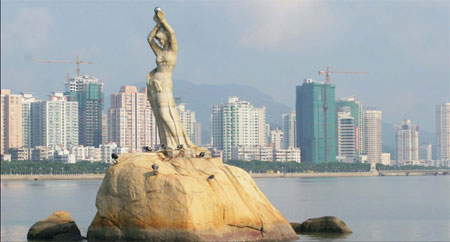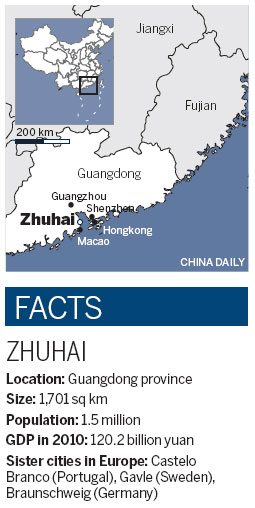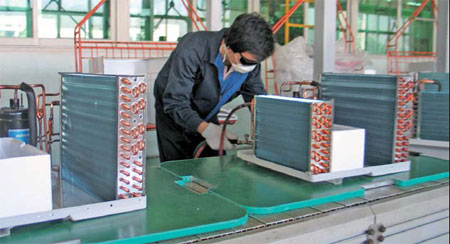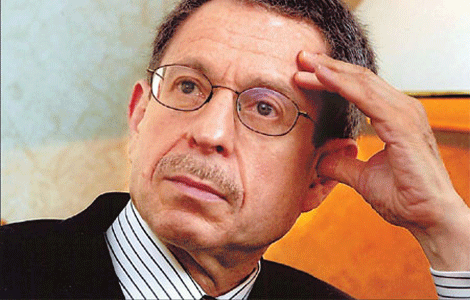Jewel of the south
Updated: 2011-09-02 10:20
By Zhao Yanrong (China Daily)
|
|||||||||
 Zhuhai Fisher Girl Statue, standing on the coast of Xianglu Bay, has become the landmark in Zhuhai, South China's Guangdong province. [Provided to China Daily] |
Zhao Chunming, work general manager of BP Zhuhai Chemical Co, brims with enthusiasm about the city.
| ||||
BP Zhuhai was the first Sino-foreign joint venture in the Gaolan Port Economic Zone, producing and marketing purified terephthalic acid. PTA is used to make polyethelene terephthalate, which in turn is used in making textiles, bottles, packaging and film products.
BP Zhuhai turned its first sod of ground in the economic zone in November 2000. Since then expansion has continued apace, and total PTA production there will eventually be 1.7 million tons a year.
|
|
Construction of the 49.9 kilometer link - commonly called a bridge, but which in fact consists of a series of bridges and tunnels - is expected to cost more than 70 billion yuan (7.55 billion euros), began 20 months ago and is due to be completed by 2016. Zhuhai will then be the only city that directly connects Hong Kong and Macao.
"More importantly, a business-friendly and responsive government, together make Zhuhai a good place to invest," Zhao says.
"We are committed to building on its cutting-edge technology and growing BP Zhuhai further."
Many other overseas companies, such as Zhuhai Cellulose Fibers Co Ltd, Shell and Hutchison-Whampoa have taken up residence over the years, and the city has a reputation for its welcoming arms to foreigners.
"Zhuhai is an immigrant city with a society less exclusive to a specific group, which is like our company," says Wang Jun, general manager of Zhuhai Cellulose Fibers Co Ltd.
Zhuhai Cellulose Fibers produces cellulose acetate tow, which is used in making cigarette filters. The venture is a joint effort between China National Tobacco Corporation and the US company Celanese.
The Zhuhai company, which employs about 330 people, was founded a little more than 18 years ago, and since then many Americans have called the city home as they have headed across the seas to work with their Chinese partners.
The Americans particularly like the relaxed lifestyle and beautiful natural surroundings, Wang says.
|
|
He says that after the visiting staff have been to the likes of Beijing, Shanghai and Guangzhou, they "often fall in love with the lifestyle in Zhuhai, which is less stressful but still full of energy and opportunities".
They feel that in their work Zhuhai is like a home away from home, he says.
The city of Zhuhai was established in 1979, when China adopted its open-door policy. The following year the former small fishing county was named as one of the first four economic special zones in China.
It covers 7,653 square kilometers, of which 1,701 sq km is land. Zhuhai had a population of 1.5 million at the end of last year. Local GDP was 120.2 billion yuan, and GDP per capita was 80,000 yuan.
"Compared with our neighboring cities, our economic development was relatively slower in years gone by," says Zhou Feng, deputy director of the Zhuhai Technology, Industry, Trade and Information Technology Bureau.
"But we look after the good, natural environment, which is more important and attractive to foreign companies now."
The air quality index has been close to optimum over the past five years, and urban vegetation coverage in Zhuhai is 44.31 percent. Green space is put at 27 square meters per person.

Zhuhai was rated as one of the "Chinese Cities with the Greatest Investment Potential" in 2009 and it was top for two consecutive years among all cities in Guangdong province in overall satisfaction with public service, according to a poll conducted by the Guangdong Academy of Social Science.
"The government has really cast itself in the role of a servant rather than as a manager in dealing with the company," Wang of Zhuhai Cellulose Fibers says.
But the government insists that investment programs are subject to strict controls, and one of the factors taken into account is the environment.
"We only approve the less polluting programs that offer high added-value," Zhou says, citing luxury hotels and an amusement park as examples.
One of the local government's tools for attracting business capital is the Zhuhai investment promotion bureau.
"Our bureau was founded two years ago to deal with the foreign investment issues specifically," says Li Dongpeng, deputy director-general of the bureau.
Administering investment matters was once hampered by the hodge-podge of government departments dealing with the matter, and the bureau's establishment has streamlined matters.
"We aim to expand our investment resources globally step by step," Li says.
The top priority is to consolidate business ties with companies in Hong Kong and Macao, then look to open up connections to Japan and South Korea, and finally to break into the American and European markets.
"Most foreign investment and companies in Zhuhai are still from Hong Kong and Macao, but we hope our economy can be diversified by attracting various investments from around the world."
He foresees Zhuhai as being a satellite city to Hong Kong and Macao, much as New Jersey is to New York.
By the end of last year, 11,064 foreign direct investment projects from 70 countries and regions had been approved in Zhuhai, with utilized foreign investment reaching $12.75 billion (8.78 billion euros), according to the industry and commerce bureau in Zhuhai.
Almost 40 of the Fortune 500 corporations have invested in 85 projects in Zhuhai, and the city has its eye on even more investment, particularly from Western countries.
Zhuhai also enjoys the status of a major port city, with its Gongbei Customs having the second largest throughput in China. Last year, foreign trade totaled $43.48 billion.
The apparatus needed to grease the wheels of commerce is also in place, with more than 50 financial institutions operating in Zhuhai, seven of which are foreign banks, including Morgan Stanley, Bank of East Asia and Standard Chartered.
However, finding skilled people is a problem for the city.
"When we recruit people for our middle management or even higher level, we'd prefer to go to Guangzhou, the capital city of Guangdong province," Wang says.
The local government has set up a university park covering 20 sq km, and has attracted about 10 top Chinese universities to locate their programs or branch schools there. Among them is United International College, jointly founded by Beijing Normal University and Hong Kong Baptist University.
The number of college students in Zhuhai was 115,000 at the end of last year. There are 15 vocational secondary schools, among them Zhuhai Technical School, which is expected to become the largest senior technical school in southern China.
Though Zhuhai is very happy for people and companies to come to it, it also encourages and helps local companies to take the initiative by going out in search of a bigger international market.
According to the Zhuhai Technology, Industry, Trade and Information Technology Bureau, Zhuhai companies invested almost $300 million overseas in the first six months of this year, already higher than the total spent last year.
"More Zhuhai companies going out can help the rest of the world get to know the city," says Li of the Zhuhai investment promotion bureau. A joint promotion exhibition was recently held in Europe and the US with Hong Kong and Macao, he says.
"Zhuhai is like the view of Lingdingyang Bay: a small spot offering a wide field of vision that is eager to engage with the rest of the world."















